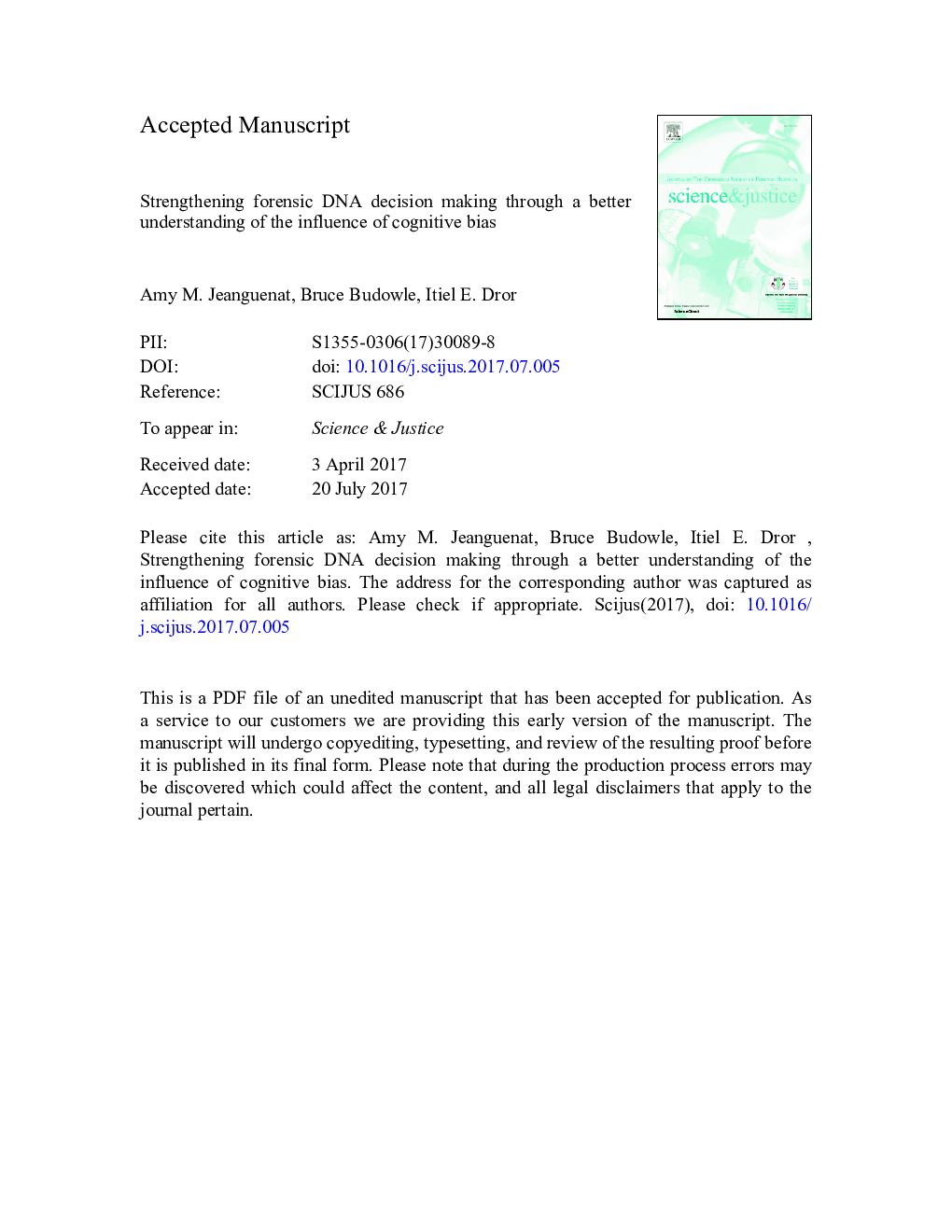| Article ID | Journal | Published Year | Pages | File Type |
|---|---|---|---|---|
| 6555954 | Science & Justice | 2017 | 21 Pages |
Abstract
Cognitive bias may influence process flows and decision making steps in forensic DNA analyses and interpretation. Currently, seven sources of bias have been identified that may affect forensic decision making with roots in human nature; environment, culture, and experience; and case specific information. Most of the literature and research on cognitive bias in forensic science has focused on patterned evidence; however, forensic DNA testing is not immune to bias, especially when subjective interpretation is involved. DNA testing can be strengthened by recognizing the existence of bias, evaluating where it influences decision making, and, when applicable, implementing practices to reduce or control its effects. Elements that may improve forensic decision making regarding bias include cognitively informed education and training, quality assurance procedures, review processes, analysis and interpretation, and context management of irrelevant information. Although bias exists, reliable results often can be (and have been) produced. However, at times bias can (and has) impacted the interpretation of DNA results negatively. Therefore, being aware of the dangers of bias and implementing measures to control its potential impact should be considered. Measures and procedures that handicap the workings of the crime laboratory or add little value to improving the operation are not advocated, but simple yet effective measures are suggested. This article is meant to raise awareness of cognitive bias contamination in forensic DNA testing and to give laboratories possible pathways to make sound decisions to address its influences.
Related Topics
Physical Sciences and Engineering
Chemistry
Analytical Chemistry
Authors
Amy M. Jeanguenat, Bruce Budowle, Itiel E. Dror,
